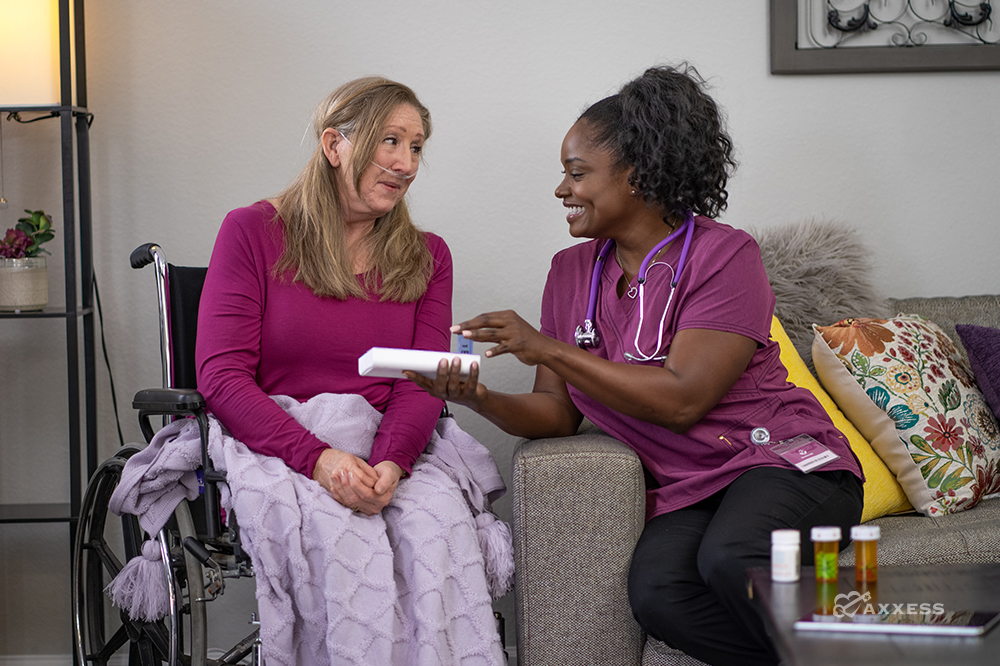
Medications are crucial for many people to perform daily activities that might otherwise be difficult. As we age, more medications are often required, and our bodies may handle medications differently than when we were younger, such as the liver and kidney function. This can affect the length of time it takes for a drug to break down and leave the body. Since 82% of American adults take at least one medication and 29% take five or more, understanding medication safety is essential.
If you are a caregiver of an older adult with medications or the caregiver of a pediatric patient who requires medications, you will need to help them stay safe too. According to the Centers for Disease Control and Prevention (CDC), adverse drug events, defined as harm resulting from medication use, cause 1.3 million visits to hospital emergency departments, and 350,000 hospital stays each year. For children, the numbers are staggering:
- One out of every 150 two-year-olds is treated in an ER for an unintentional medication overdose.
- More than 90% of ER visits for unintentional medication overdoses among children under the age of five involve children who get into medicine on their own without caregiver oversight.
- Approximately 5% of ER visits for unintentional medication overdoses among children under the age of five are due to medication errors. A common error is when caregivers measure and give too much medicine by mistake.
Here are seven safety tips for prescription medications:
- Read the label. Review medication labels and instructions carefully and take medicine exactly as instructed by the physician. If you or someone you care for can’t afford medications, let the doctor know so that they can choose a substitute medication that could be less expensive. Physicians or pharmacists may also know of a prescription program or coupons that manufacturers can provide.
- List medications. Know your medications and have a reference sheet with you. If you are a caregiver, always encourage your clients to keep this list with them. Be sure it is a complete list of all prescription and over the counter (OTC) medications, with their dosage, how often they are taken, and why. OTC medications may contain the same ingredients, which can be harmful if you are taking too much or can contain ingredients that become dangerous when mixed. Using one pharmacy will help clients, as well as the pharmacist, keep track of their medications. Pharmacies may be able to provide a complete list of medications.
- Store it right. Keep medications in a safe place. Medications may need to be kept in a dark place (or with a dark wrapper on them), in the fridge, or a dry place. The common place people keep medications is in the bathroom cabinet, which is usually not the most desirable spot. They should be kept out of sight and reach of children.
- With medicine, sharing is NOT caring. Never share prescription medications. Medications are chosen by the physician, based on many factors: diagnoses, age, weight, lab work (organ function tests), etc. Everyone is unique, and so are their medications. Call the physician or pharmacist when getting low on medication, instead of using someone else’s prescription that you think is the same.
- Check expiration dates. Expired medicine often does not work as well, or at all, and can be dangerous. The chemical composition or strength and effectiveness of the medication can change after it has expired. According to the U.S. Food and Drug Administration (FDA), certain expired medications are at risk of bacterial growth, and sub-potent antibiotics can fail to treat infections, leading to more serious illnesses and antibiotic resistance.
- If it’s done, throw it out. When medication use has ended, or when medicines have expired, get rid of them. Many people may not be aware that medicines that hang around in home cabinets are highly susceptible to diversion, misuse and abuse, according to the U.S. Drug Enforcement Administration. You can dispose of unused or expired medicine safely through the National Prescription Drug Take-Back Day, which is on April 25.
- Be aware of side effects. Every medication has side effects. Side effects can range from a dry mouth to facial and throat swelling with difficulty breathing. Know the common side effects of medications, and report anything that you or those you provide care to, are concerned with, to the physician. Do not stop taking a medication without talking to the physician first.
Following these seven safety tips can keep you and those you care for safe when taking medications. Don’t forget that a home care software can assist with tracking medications and providing education about side effects. Help those you help stay safe.
